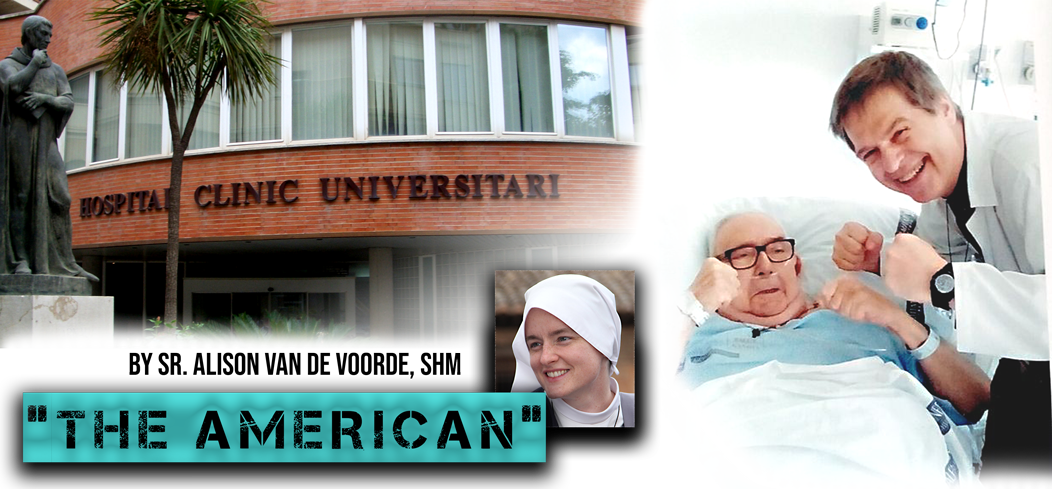At the University Hos- pital almost everyone knew Father Henry as “the American.” When I was with a patient or a hospital worker and I asked them, “Do you know the chaplain?”, they would answer, “The American, the really tall one?” Many of the nurses called him “the good-looking chaplain”, even though I insisted that one should not make that kind of comment about a priest.
At the University Hos- pital almost everyone knew Father Henry as “the American.” When I was with a patient or a hospital worker and I asked them, “Do you know the chaplain?”, they would answer, “The American, the really tall one?” Many of the nurses called him “the good-looking chaplain”, even though I insisted that one should not make that kind of comment about a priest. Father Jules Badenes, one of the three chaplains who worked for many years with Fr. Henry and got along very well with him, said, “What these nurses said was true. His humanity was impressive, but it is because his humanity transmitted God.”
Fr. Henry did not go unnoticed. Even the people who worked in the cafeteria loved him. Some gave him double portions, I don’t know if it was because of his size, his charm, or a mixture of the two. He was always looking for the spiritual good of souls. He even married a couple who had been living together for years but had never settled their situation. He only thought about the value of winning over one soul. He did not care about what others might think or about the difficulty or discomfort that he could receive.
Something that helped me (and still does) was Fr. Henry’s sim- plicity. In many ways, he was like a child, a child with a very big heart and the spirit of a giant. I worked for several years in the hospital with him...and he was so normal! He was very human, in the good sense of the word, and sensitive, too. He would rejoice; he would get tired; he would get sad; he would be filled with enthusiasm. I even saw him get angry (although always for noble causes). He asked for help when he needed it...

